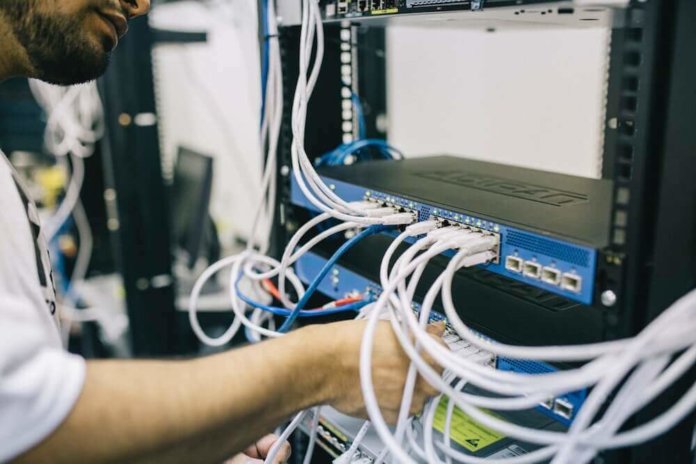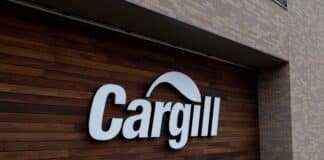
As return on investment goes, this one was pretty good. After starting the fledgeling company Syntel in their Troy, Michigan apartment with an initial investment of only $2,000 in 1980, Bharat Desai and his wife Neerja Sethi saw Syntel flourish and grow to its current valuation of $1.34 billion.
There can be no question that Syntel has an impressive track record spanning three decades. From those humble beginnings, the company now stands as a pre-eminent worldwide provider of information technology solutions to Global 2000 corporations. As of 2017, Syntel has $966 million in sales and nearly 23,000 employees worldwide, 80% of which are in India according to Forbes.
“Our initial investment of $2,000 is worth more than a billion today, so that’s a pretty good return,” Desai said in a 2010 NDTV interview. “But what’s most gratifying is the kind of confidence and responsibility that our clients have bestowed upon us and the tremendous work our employees do around the world.”
It would appear the only significant stumble came in late 2016 when Syntel’s stock fell sharply. Now, Bharat and Neerja find themselves in the unusual position of having to rebound. Yet, if their history of success is any indication, this won’t be anything more than a small bump in the road.
Boy Meets Girl
Although he would one day come to be known as the world’s wealthiest Indian-American, Bharat Desai was born in Kenya in 1952. His parents are of Gujarati Indian origin and he grew up in Mombasa and Ahmedabad. After acquiring a degree in electrical engineering from Bombay, he moved to the United States where he earned an MBA in Finance from the University of Michigan. In 1976, he landed a job with Tata.
Neerja Sethi was born in Delhi where she earned an undergraduate degree in mathematics. She too would emigrate from India to the United States to acquire an MBA, hers being in operations management from Oakland University. They were an ideally matched power couple. Aside from the obvious personal connection, they had complementary MBAs making them perfectly suited to lead the U.S. tech boom.
Slow Beginning
In their first year of operation, Syntel earned only $30,000 in sales. Undoubtedly, there were systemic and cultural obstacles the young couple had to face in the American business community of the early 1980s. Neerja Sethi would later describe it politely as, “[Overcoming] biases in some people’s mind.”
As it turns out, their Indian heritage enabled them to see opportunity where others did not. In 1992, Syntel opened its first two Global Development Centers in Mumbai and Chennai. In doing so, they became one of the first U.S. IT service companies to take a global approach to its workforce. It would be more than a decade before the rest of the industry would follow suit making “outsourcing” a household term.
With the majority of their employees working from India, the company saw profits skyrocket. In August 1997, Syntel became a publicly traded company and shortly thereafter, their revenues passed the $100 million mark.
Looking back, Desai points to their global delivery approach as a key factor in the company’s success.
“Almost all of [our competitors] have a strong on-site model and they have huge overheads. Syntel’s advantage over them is very deep technical skills, our Global Delivery Model and the resulting cost structure, and our rapid implementation approach,” he said in a Wall Street Journal interview. “Syntel clearly has the most experience in executing large-scale outsourcing projects using this unique Global Delivery Model.”
As Syntel grew, it honed a strategy allowing major players to focus on their core competencies and not get bogged down in trying to understand the rapidly changing technology landscape. As such, it was built on a foundation of three business units: their IntelliSourcing unit delivers complete applications development, maintenance, and platform migration services; the Enterprise Solutions Group focuses on the Enterprise Resource Planning or ERP space; the Team Sourcing unit provides IT consulting and staffing solutions.
Another important strategy was locking in extended multi-year service engagements rather than working on a piecemeal project-by-project basis.
“Many IT services companies are working on a project basis, but these types of engagements have a short life and the revenue needs to be constantly replaced,” Desai said. “Through our multi-year engagements, we can deliver true value and cost effectiveness to our clients and through the utilization of our Global Delivery Model, we can continue to expand our margins.”
As Syntel’s success showed no signs of abating, both the company and the couple who founded it were being lauded by their peers. Desai was recognized as “Entrepreneur of the Year” by USA Today in 1996. Three years later Harvard Business School gave him the 1999 Michigan Entrepreneur Award. For her part, Neerja Sethi was ranked 16th in the Forbes list of most successful American women.
In 1998 Syntel made the Individual Investor magazine’s America’s Fastest Growing Companies list as well as Business Week’s Hot Growth Companies roster. In 2009 it was rated as the Top IT Outsourcer on Forbes 200 Best Small Companies list.
The 2016 Stock Drop
The Syntel stock price had held steady around $45 per share for nearly three years from 2013 to 2016 and on August 26th, 2016, the price was $46.22. However, by November 4th of that year, it had plummeted to $19.20. It reached its lowest point at $16.16 on July 7th, 2017.
So, what happened? Part of the reason can be attributed to a common family business issue – lack of succession planning. In a post for Seeking Alpha, Mark Bern, CFA observed, “The founder, Bharat Desai, found his children had no interest in leading the company into the future. At the time there were no interested buyers for his company at a price he deemed reasonable. Desai wanted to enjoy the fruits of his labours, meaning he wanted to turn his holding into cash without giving up control.”
To acquire that cash, Desai authorized a special dividend ($15/share) payout which took $1.26 billion out of the company. Unfortunately for Syntel, this coincided with a revenue stumble. The end result was a decrease in investor confidence and a sharp decline in the stock price.
Looking ahead in the long term, the recent stumble is in no way expected to be life-threatening for the IT services giant. Bharat Desai and Neerja Sethi have demonstrated their ability to grow and sustain Syntel over many years. Recent indications are that they are on the right track. The stock price is nearing the $30 mark once again and some analysts are predicting a full recovery by the end of this year.
All things considered, Bharat Desai and Neerja Sethi are still a paradigm of success in family business. Growing a billion dollar global IT giant from a $2,000 initial investment? Not bad at all.









